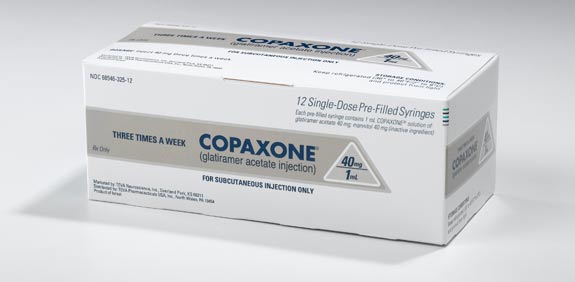FDA Delays Ruling on Teva Petition Against Generic Copaxone for MS
Written by |


Teva Pharmaceutical Industries Ltd., the company behind multiple sclerosis drug COPAXONE® (glatiramer acetate injection), has been pursuing the US Food and Drug Administration‘s decision against approving a generic version of the drug, by Mylan, Inc. Teva’s petition has been turned down several times, with the most recent rejection handed down last week, when the agency said holding a hearing would be premature, as the generic version’s clinical trial is still in progress. The FDA said it would be willing to hold a hearing on Teva’s petition if and when the generic formulation has been approved.
According to Mylan’s marketing partner, Natco Pharma, “Mylan believes it is one of the first companies to have filed a substantially complete ANDA containing a Paragraph IV certification for this product and expects to be eligible for 180 days of market exclusivity in the US upon final FDA approval.”
Copaxone, Teva Pharmaceuticals’ lead product, accounted for a total of $2.3 billion worth of sales in 2014 in both of its dosages. In last week’s rejected petition, the company had forwarded findings on gene expression following treatment with Copaxone, claiming a risk for alterations in gene expression upon treatment with generic formulations.
[adrotate group=”4″]
While the most recent rejection may seem to be a disadvantage for Teva, the fact that the FDA has not passed a ruling on the company’s petition means they can rely on the agency’s prolonged time to consider a case. This extended time may be what the company needs to build a more solid consumer base for the newly patented double-dosage formulation of Copaxone. Additionally, the company is dealing with the same issue against the generic version in hearings with the US Supreme Court. This matter is expected to receive a ruling in the next few months.
In other news on Teva’s strategies to expand Copaxone’s market reach, efforts to gain approval in Japan are already underway. This development comes a year after signing an agreement with Takeda Pharmaceutical Co. Ltd. According to a recent report, the drug is estimated to account for more than half of Teva’s profits.


